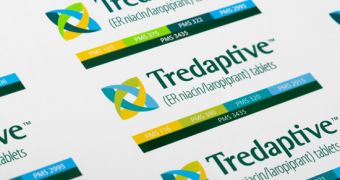Only yesterday, Merck & Co Inc made it public news that their study concerning the cholesterol drug Tredaptive (a combination of extended-release niacin and laropiprant) “did not meet its primary endpoint.”
In other words, the drug is not all that great when it comes to reducing the risk of developing a combination of coronary deaths, non-fatal heart attacks, strokes or revascularizations when administered to people who are also taking a cholesterol-lowering statin drug.
Furthermore, it seems to up the chances for non-fatal yet serious adverse events.
These conclusions were reached by means of a study that involved a total of 25,673 patients from the United Kingdom and Scandinavia (14,741) and China (10,932), all of whom were considered to be at high risk for cardiovascular events.
Each of these patients was closely monitored for an average of 3.9 years by specialists working with the Clinical Trial Service Unit at Oxford University.
The funding needed in order to carry out this study was provided by Merck & Co Inc.
Their goal was that of comparing and contrasting the effects of the extended-release niacin and laropiprant plus statin therapy and those of the statin therapy on a patient's well-being.
As explained in the official press release on this matter, “In the study, adding the combination of extended-release niacin and laropiprant to statin therapy did not significantly further reduce the risk of the combination of coronary deaths, non-fatal heart attacks, strokes or revascularizations compared to statin therapy.”
“In addition, there was a statistically significant increase in the incidence of some types of non-fatal serious adverse events in the group that received extended-release niacin/laropiprant.”
For the time being, Tredaptive is available for sale in roughly 40 countries. However, the company asks that no new patients be given this drug.
“While we are disappointed in these results, we thank the investigators who have conducted the study and the patients who have participated in it,” stated Peter S. Kim, Ph.D. and the president of Merck Research Laboratories.

 14 DAY TRIAL //
14 DAY TRIAL //